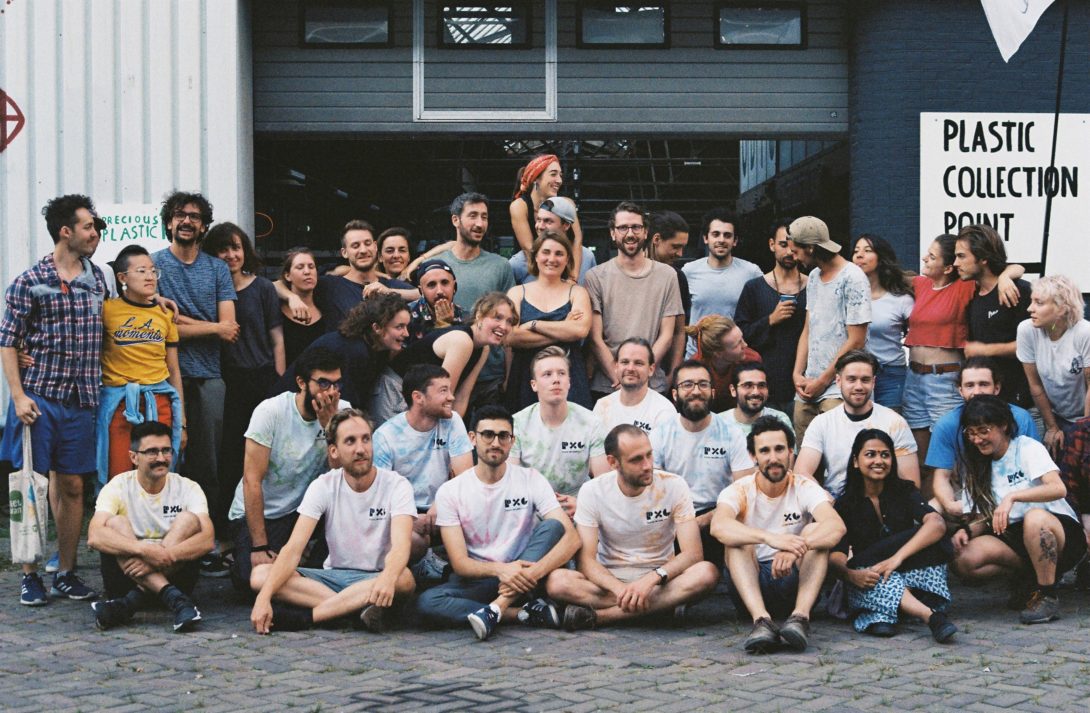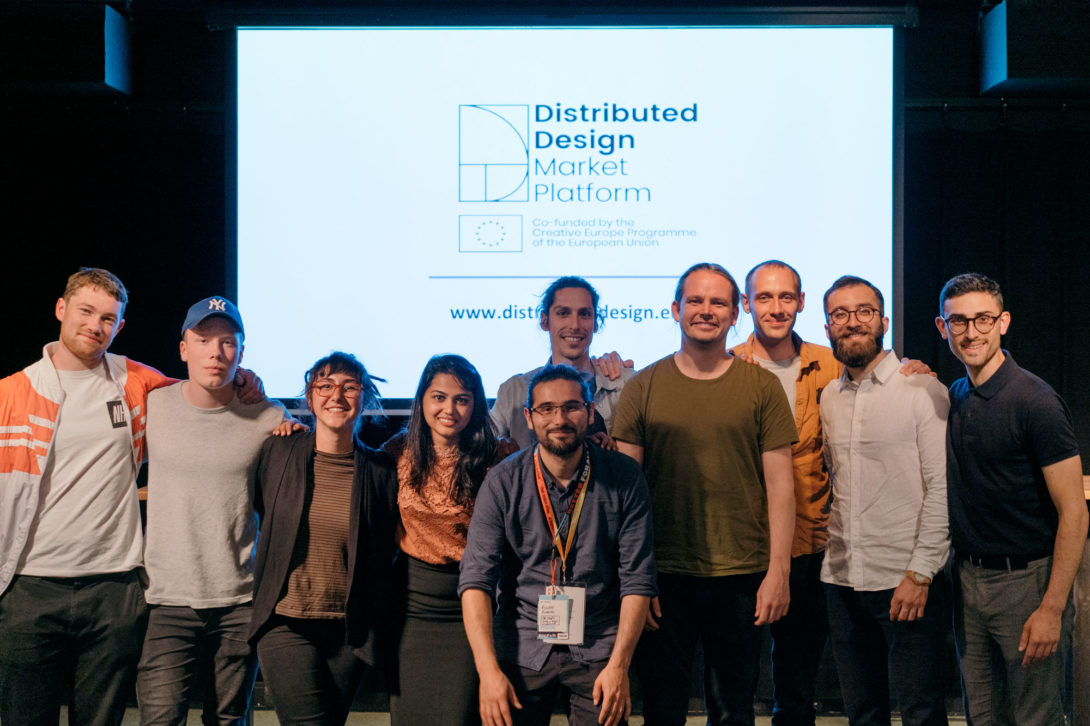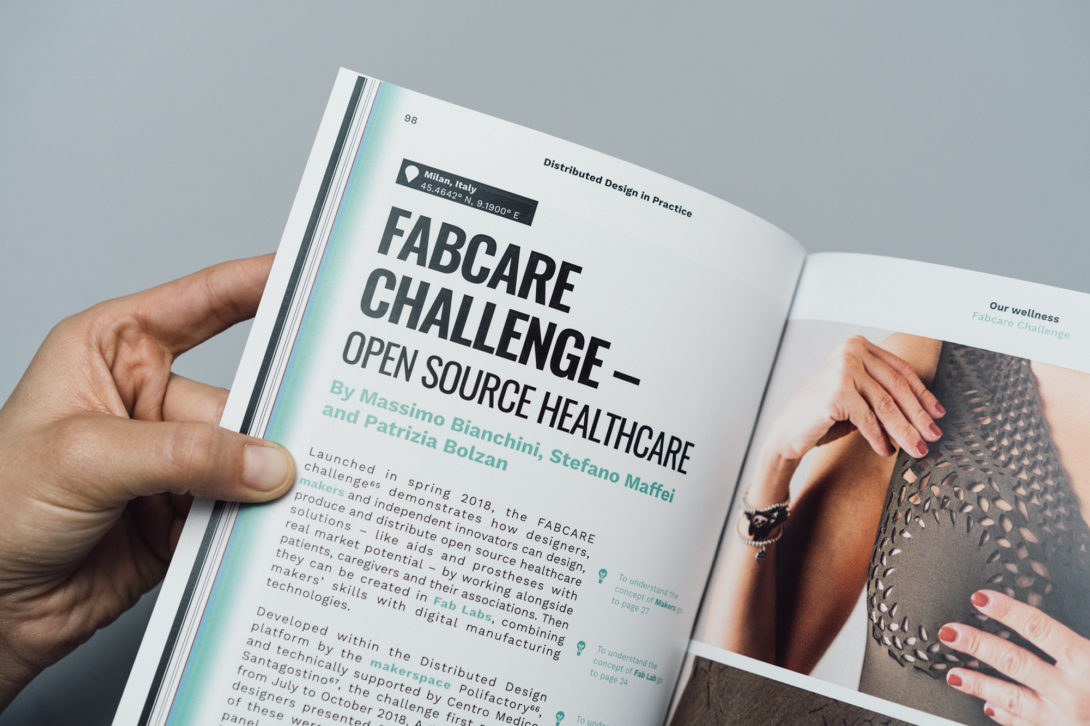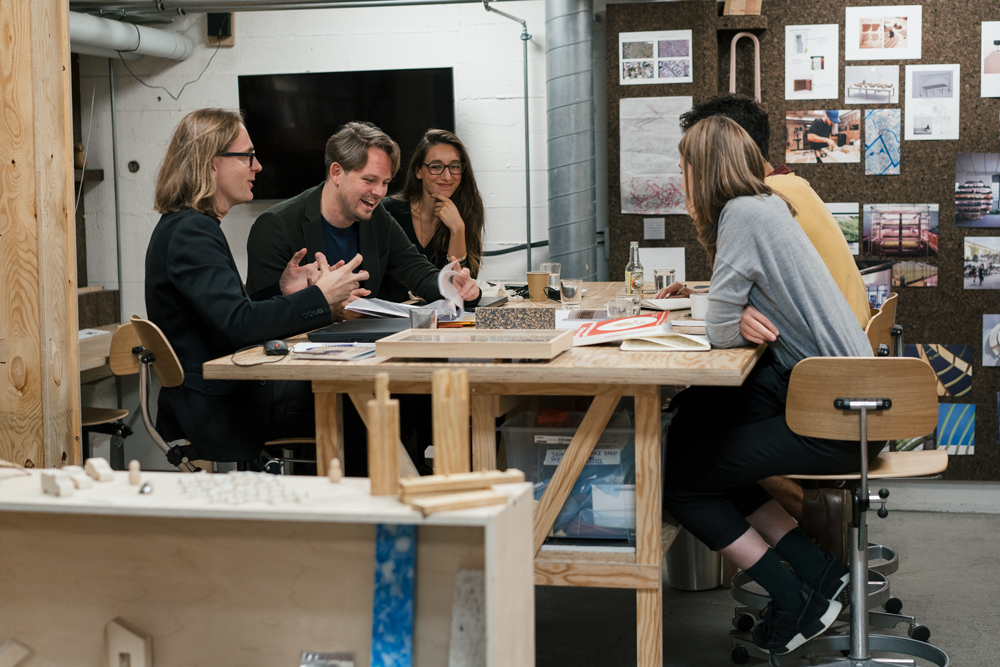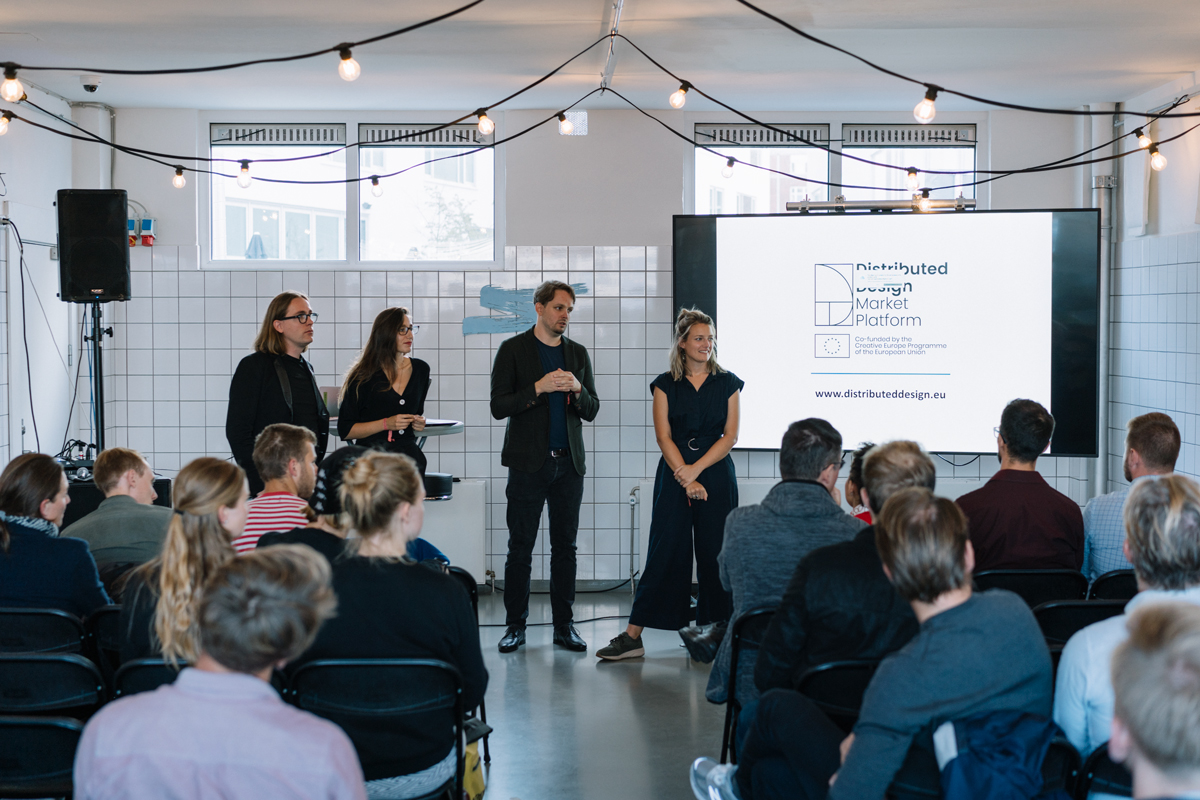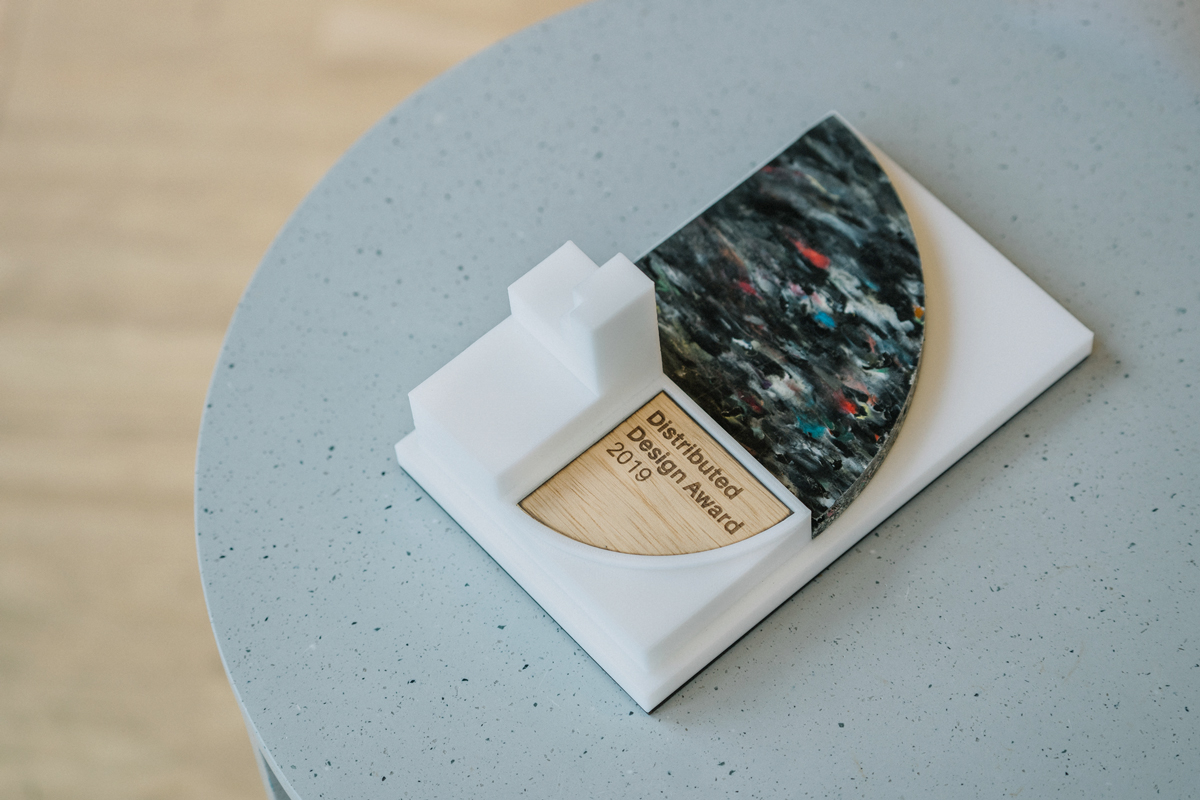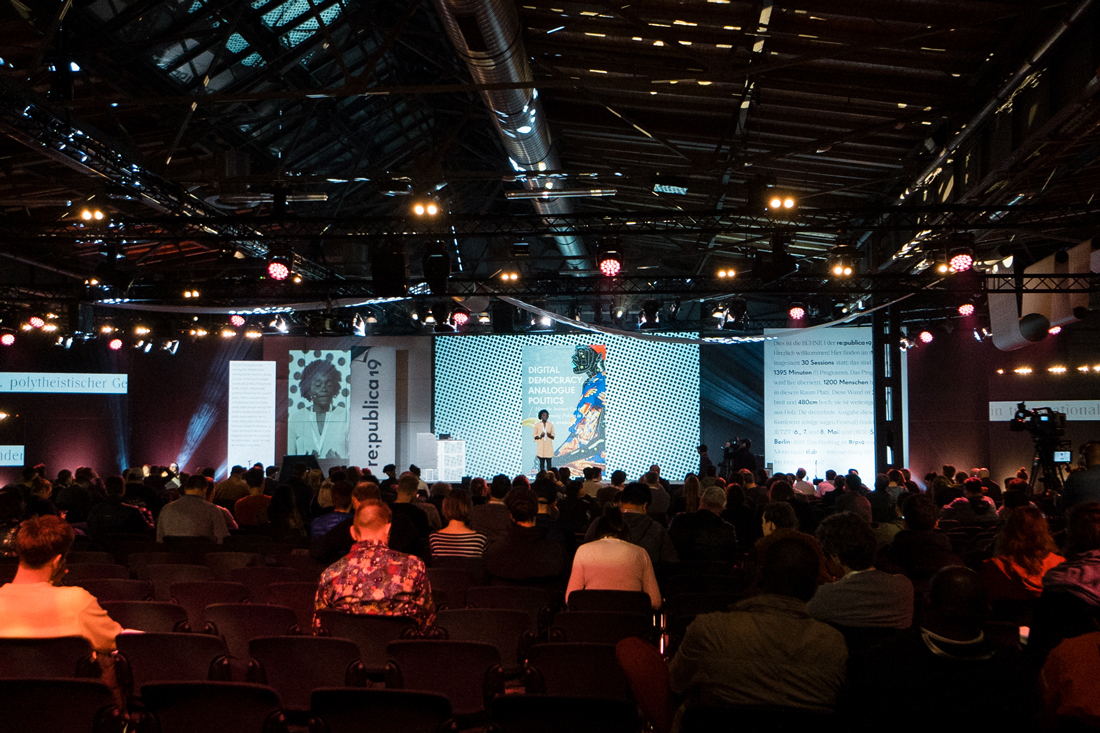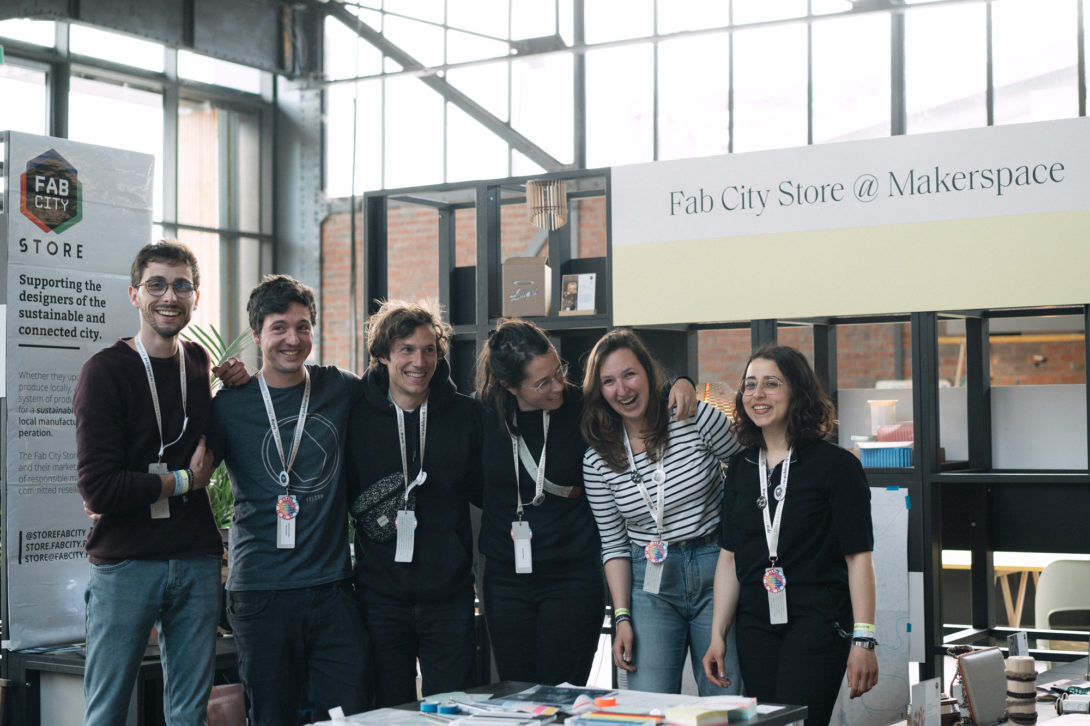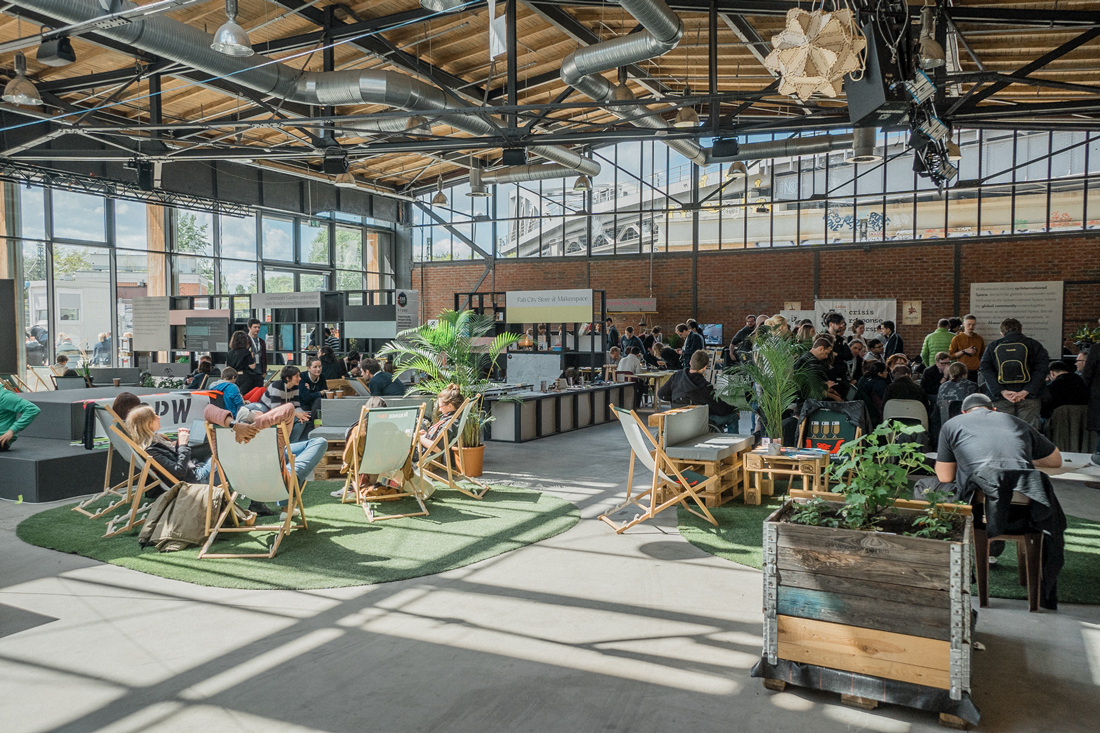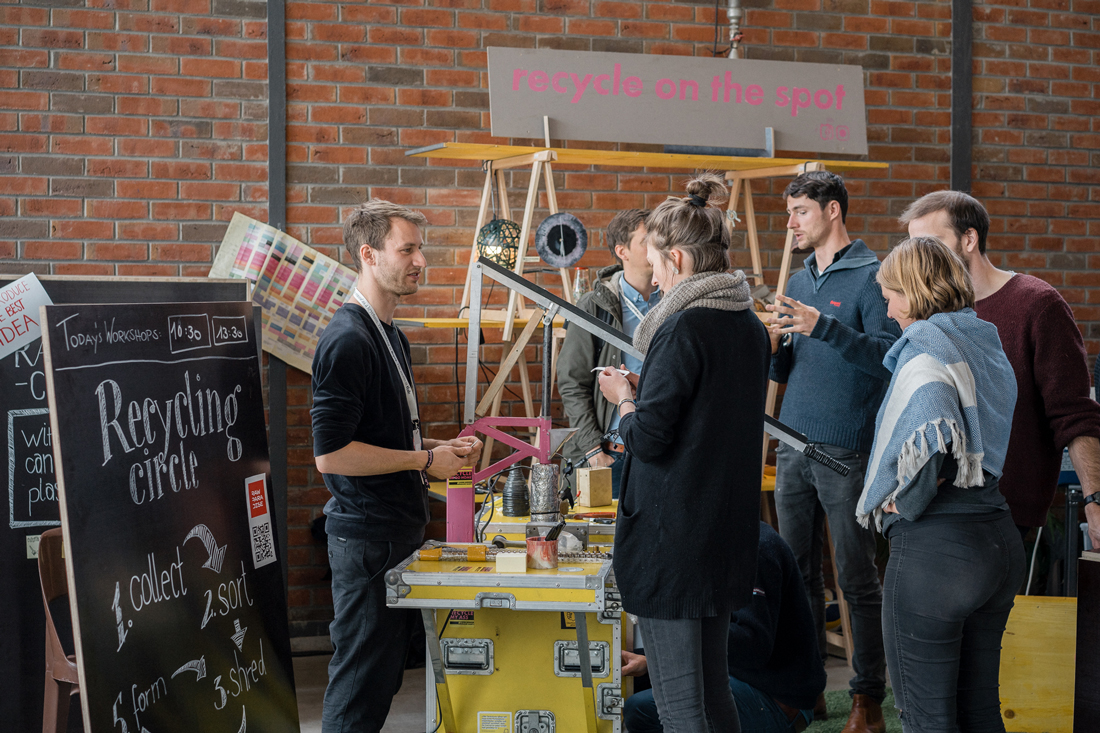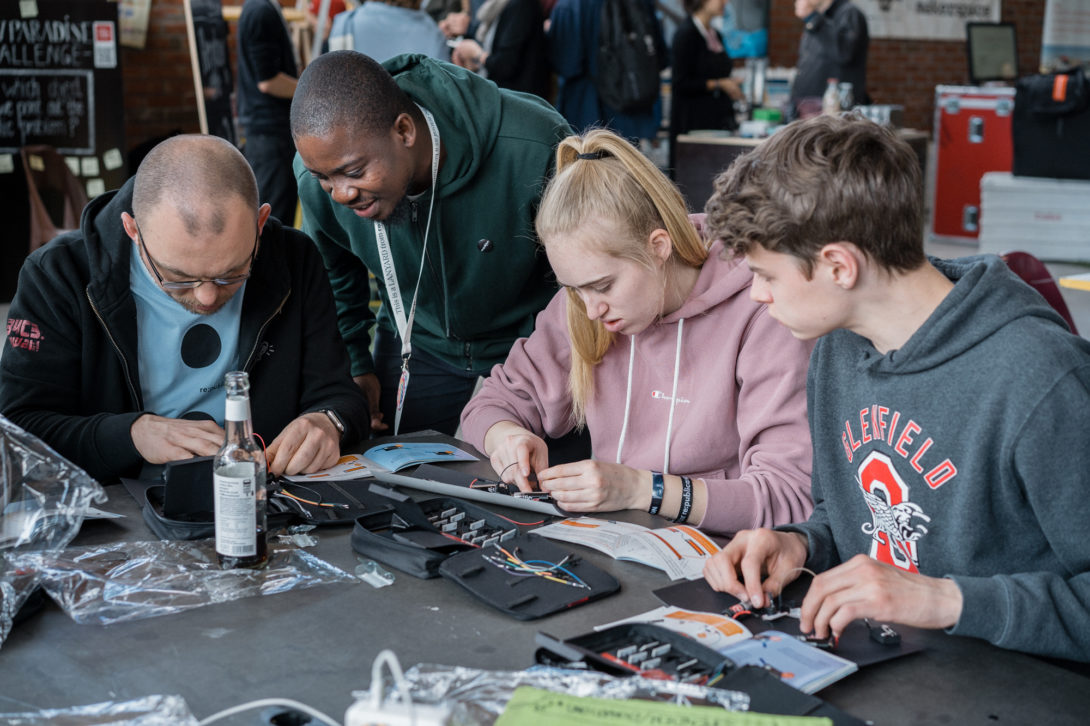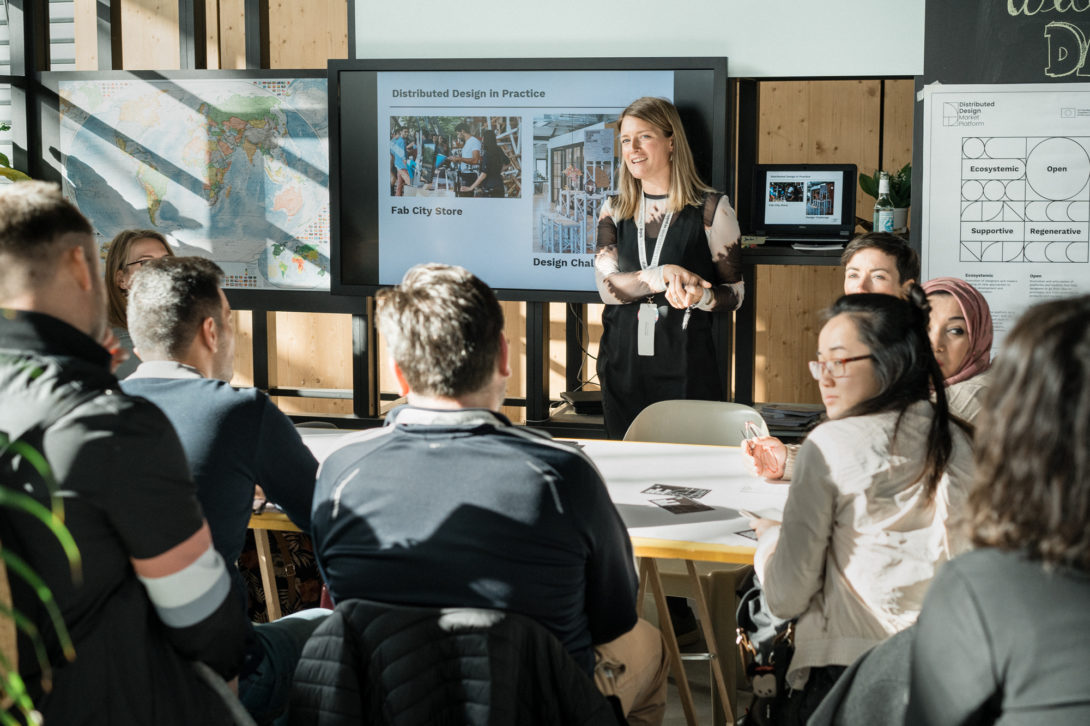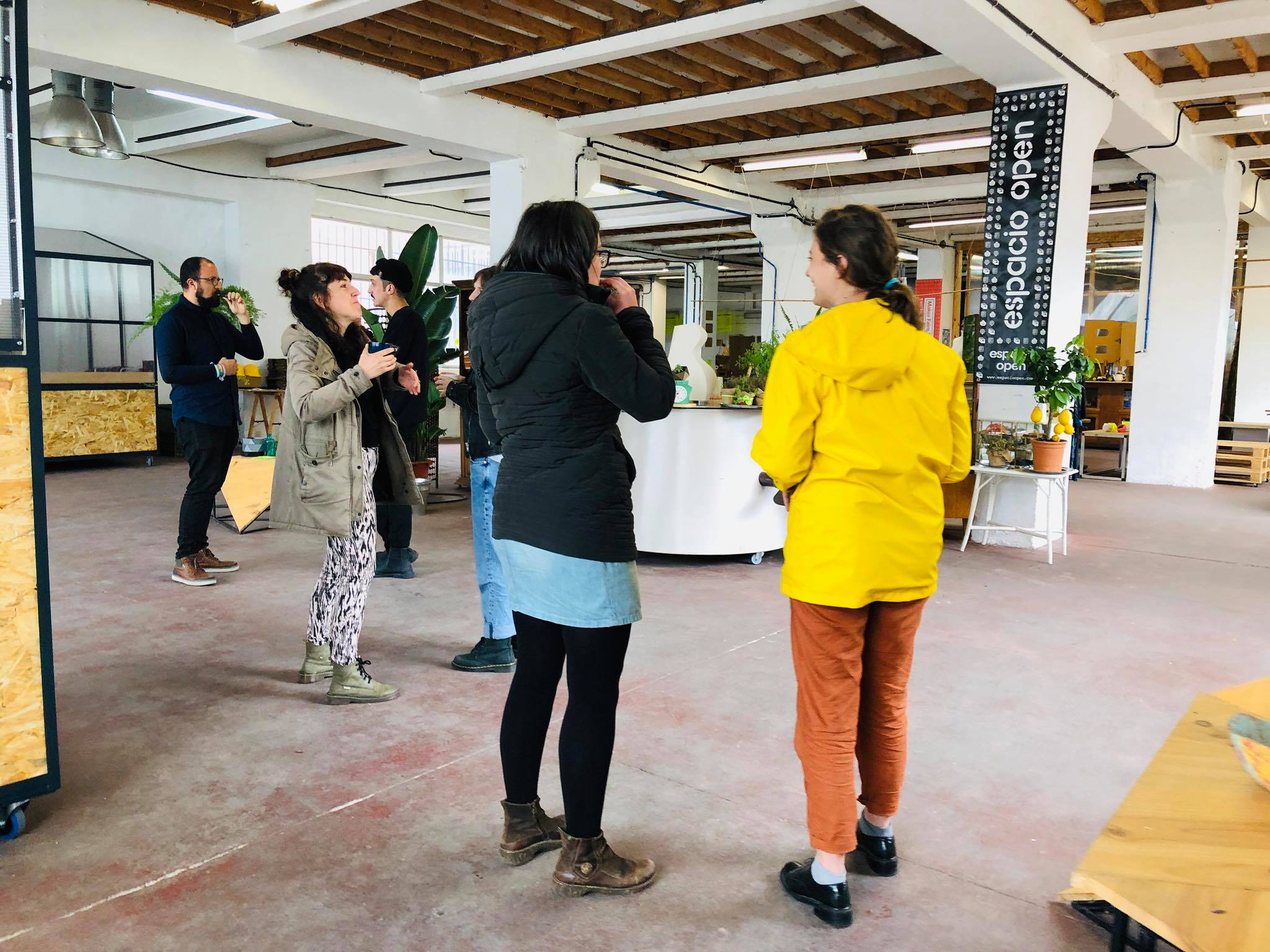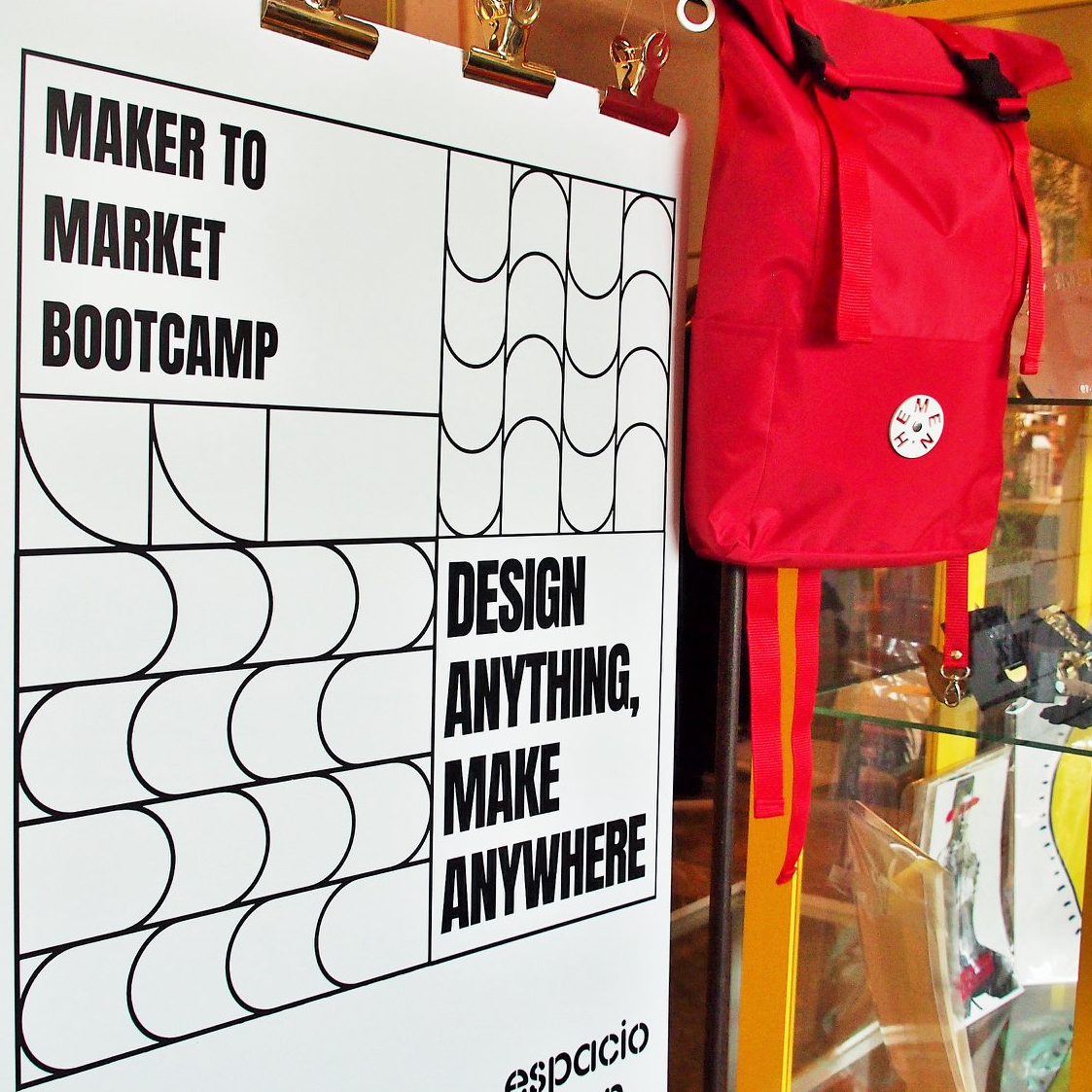Blog
The affect that design has on the climate crisis and global inequality is growing in the global consciousness. It is becoming more and more evident to us all, that mass produced goods including furniture and fashion contribute to global emissions, land clearing, opaque supply chains, resource misuse and waste. Designers have a role to play in engaging consumers with sustainable product alternatives and as such need to have the skills and knowledge to design and practice in alternative ways. Distributed Design proposes an approach to sustainable design that calls on the practices of the Maker community. It explores alternatives to mass-production and aims to up-skill designers of the future through events, resources, tools, networking and mentorship. 2019 saw the second funding year of the Distributed Design Platform achieve numerous successes across the 14 Members in 12 European countries with thanks to the support of the Creative Europe Programme of the European Union.
Here’s a wrap-up of some of the trends and tendencies emerging from the platform and an overview of the year that was.
Excellence
The Distributed Design Award recognizes and promotes excellence in Distributed Design practice at the European scale. In 2019, 14 shortlisted nominees of the Award were chosen by local platform members and invited to attend a special ceremony event in Amsterdam hosted by local member Pakhuis De Zwijger where three finalists were announced. The shortlisted designers, who represented everything from hyper personalised healthcare products to a Kombucha Media Lab, also attended the summer school with international design and maker organisation Precious Plastic led by Dave Hakkens. The Summer School, ‘Plastic for Good Challenge’ was a highlight of the yearly programming. It’s success became a mini-documentary and knowledge sharing tool on Youtube, as well as an article in the yearly Distributed Design book publication, Design Remix, Share, Repeat (another yearly highlight!). It also generated four press articles and grew social media traction by 60,000 impressions during the event.
Through an assessment based on the values of Distributed Design, the Advisory Board selected one global winner of the Distributed Design Award, vivihouse, who was awarded at a ceremony in Copenhagen at local member Danish Design Centre, with representation from Advisory Board member Lisa Cheong. The winner was also invited to join the ceremony of the global INDEX:Award, were included in the yearly book publication and received a project mentoring experience with Advisory Board members Space10 and experts from the Danish Design Centre.
Collaboration
This year saw an increase in collaboration between the different European countries and platform members both at events and online. Local Parisian member Fab City Store collaborated with RePublica festival, DD Conference partner and platform member, developing the Fab City Store at the international event in Berlin where associate platform members Wikifactory and Precious Plastic Berlin, Recycle on the Spot were also in attendance. In 2020, Fab City Store will collaborate with Vienna member, HappyLab for the annual Vienna Design Week. During London Design Festival, Other Today hosted an exhibition at Machines Room, Containerville (a city of shipping containers) as part of the Cohort Future Cities exhibition focusing on positive social and environmental impact. At Budapest Design Festival, Fab Lab Budapest created an exhibition of DD projects in the centre of a busy city shopping mall – a highlight the platform members were all able to experience during our visit to the Festival in October.
The Platform is also supported technically by fablabs.io which expands in users each year – from 13,911 to 27,837 total users this past year! This year we integrated with the platform Wikifactory to enable open source design projects to be hosted and collaborated on between the two platforms. Wikifactory were a finalist in the first ever Distributed Design Award in 2018 and it was a pleasure to announce the technical partnership with them at the global Fab Lab conference, Fab15 Egypt 2019.
Through the platform funding, this year Icelandic member Innovation Center Iceland was able to build on existing collaborations to reinforce their local DD ecosystem. This year they worked with Fab Lab Iceland network and School of Education at the University of Iceland to start to introduce approaches to making into schools and the educational system in Iceland. They plan to develop design thinking tools and design sprints to be implemented into the workflow of Fab Labs around Iceland to work with the DD methods that are being implemented into the Fab Lab network around Iceland. They also developed an unforgettable textile bootcamp with the distributed textile academy Fabricademy, taking DD in the field of textiles, fashion, wearables and material innovation on a tour of Icelandic DD textile ecosystem. This coming year Innovation Center Iceland will expand these practices by engaging with new platform Associate, Make Works. More to come on that amazing platform soon.
Scaling
In 2019, Lisbon Member Fab Lab Benfica were able to scale-up their annual mini-makerfaire to Maker Faire Lisbon, to become the only Maker Faire in Portugal. By doing so, they were able to involve a broader audience in the topic of Distributed Design, tripling the planned engagement of Emerging Creatives and attracting four-times the foreseen social media audience. Hungarian member Fab Lab Budapest also greatly increased engagement in their activities this year, attracting five times the foreseen audience to their meet-up event and organically reaching 10,7k users on social media. Importantly, they also reached a good gender balance in their activities – which is an important metric of success in changing the archaic systems of design.
Diversification
One overall indicator of the quality of the platform activities in 2019 was the diversity of engagement and reach of the activities across Europe, and the world, as well as the quality of collaborations undertaken by the platform. Fab Lab Budapest collaborated with Design Week Budapest, Other Today hosted events as part of London Design Week at the V&A Museum and HappyLab in Vienna collaborated with Vienna Design Week which has led to a wider collaboration in 2020. Copenhagen Maker hosted exhibitions with Techfestival and Respond Festival and developed diverse public interest in Distributed product Design. They have received enquiries for other exhibitions based on these events. Open Dot hosted Masterclass with Heather Corcoran, Outreach Lead at Kickstarter who celebrated the quality of projects presented by the local emerging creatives in Milan. The platform also collaborated with Precious Plastics, INDEX Award, Fab Lab Network, Fab City Network, Faberin across the year and we look forward to expanding these collaborations next year!
Mentoring for the future
Local Dutch member Pakhuis de Zwijger reported on the benefits of ‘connecting emerging makers with industry mentors’ to exemplify the possibilities of Distributed Design. Their event DDMP Talkshow: Design for the Better invited industry experts including Industrial designer Yassine Salihine is who is specialized in design and manufacturing innovation and their event DDMP Emerging Talents: Breakfast Session invited practicing designers in textiles, jewelry and product to speak about their experiences with the concepts of distributed design. From a conceptual perspective, Fab Lab Benefica reported that the DD activities they hosted such as a Meet-up, had helped emerging designers understand what new possibilities may exist in the field of design as ‘they are anxious because they feel that there will be less opportunities in the future.’
Building Capacity
In 2019 there was a growing trend across the Platform members and engaged Emerging Creatives towards the need to find a common strategy towards dissemination and share knowledge, findings and learnings both internally and beyond the platform as resources. The Platform has thus far developed 245 open source outputs and in the next year, how these are disseminated will be a focus of the platform in order to accelerate the utility and sustainability of the platform by further building the capacity of emerging creatives. We foresee that this can also increase the value of the platform activities beyond the events and into spill-over creative fields. During the year, IAAC hosted two international events at conferences to test approaches to resource building: a communications workshop for makers and lab managers at Fab15 Egypt and Open Source Business Model mapping at re:Publica Makerspace. These events provided primary insights into how resource development may be best approached in the coming year.
Across the platform members 2019 saw a continued tendency towards clusters that can help to both define and understand the role of Distributed Design in practice. The book was edited to reflect this and was organised to provide space for members to write about their particular cluster or field. Under the ‘Wellness’ cluster, Italian member POLIMI reported that the Health&care Summer School they hosted resulted in an amazing experience in terms of good working environment, commitment of participants and quality of outputs. It became obvious to them that co-designing solutions in a short-span and with real people with real problems was challenging but also a driver of innovation.
By analysing the objectives and actions of each member activity, it can be seen that there is an early tendency towards each member reflecting one of three practices: Research and Development, Practice and Product Development or Events and Advocacy. This patterning was observed later in 2019 and will be reviewed during 2020 but could provide a taxonometric approach to mapping and understanding roles within the Platform Ecosystem in addition to content cluster. This can enable the efficient sharing of resources, methods and approaches internally in the platform.
Building Trust
In addition to quality over quantity emerging as a trend from the platform activities, this year, trust also showed up as an important theme. Bilbao member Espacio Open focused on the benefit of developing long-term relationships with their local creative community through the delivery of dedicated mentoring. These events gave space to emerging talent to ‘discuss several taboo topics such as how much can be charged for a product or service in a safe space where an honest conversation can take place.’ They adjusted their local indicators of success to include the longevity of engagement in the program of the emerging creatives: ‘the two day format bootcamp created such enthusiasm in the participants that the program was extended to improve support all year long in order to maximise impact.’
Beyond 2020
With the new decade comes a renewed energy to explore processes and practices that will define the next decade (or more!) of design. It is clear that the design world as we know it is undergoing an upheaval and will continue to do so as our planetary and technological contexts come to have more and more impact on our practices as designers. What is clear, is that the traditional schools of thought that have shaped the design field are rapidly being replaced with urgency and the need for democratic, collective action. Design is waking up to it’s potential to respond to the current crises that challenge us and Distributed Design aims to explore this potential through the provision of resources, events, research opportunities and networking experiences that can provide one approach to design for good in the coming decade.

